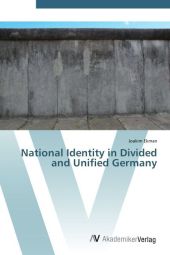 Neuerscheinungen 2012Stand: 2020-01-07 |
Schnellsuche
ISBN/Stichwort/Autor
|
Herderstraße 10
10625 Berlin
Tel.: 030 315 714 16
Fax 030 315 714 14
info@buchspektrum.de |

Joakim Ekman
National Identity in Divided and Unified Germany
Aufl. 2012. 300 S. 220 mm
Verlag/Jahr: AV AKADEMIKERVERLAG 2012
ISBN: 3-639-44041-2 (3639440412) / 3-8364-6594-9 (3836465949)
Neue ISBN: 978-3-639-44041-6 (9783639440416) / 978-3-8364-6594-6 (9783836465946)
Preis und Lieferzeit: Bitte klicken
Revision with unchanged content. Following World War II, Germany was divided in two parts. For a period of more than 40 years, two German states developed in separation from each other, and because of the horrors of the recent past, both states badly needed to develop new national self-images. In the German Democratic Republic (GDR), the communist regime desperately tried to foster a distinct socialist GDR identity among the East Germans. In the Federal Republic of Germany (FRG), the successful economic and political development led to the emergence of a new, post-war national identity. The Berlin Wall was opened on November 9, 1989, and Germany was formally unified not even a year later, on October 3, 1990. The past decades have shown, however, that Germany has had difficulties in becoming informally unified. This study examines attitudinal differences between East Germans and West Germans, and asks if differences today are primarily ascribable to different historical experiences, or rather an outcome of the uneasy unification process.
Dr Joakim Ekman (b. 1970) is Associate Professorof Political Science at Södertörn University College,Sweden.


